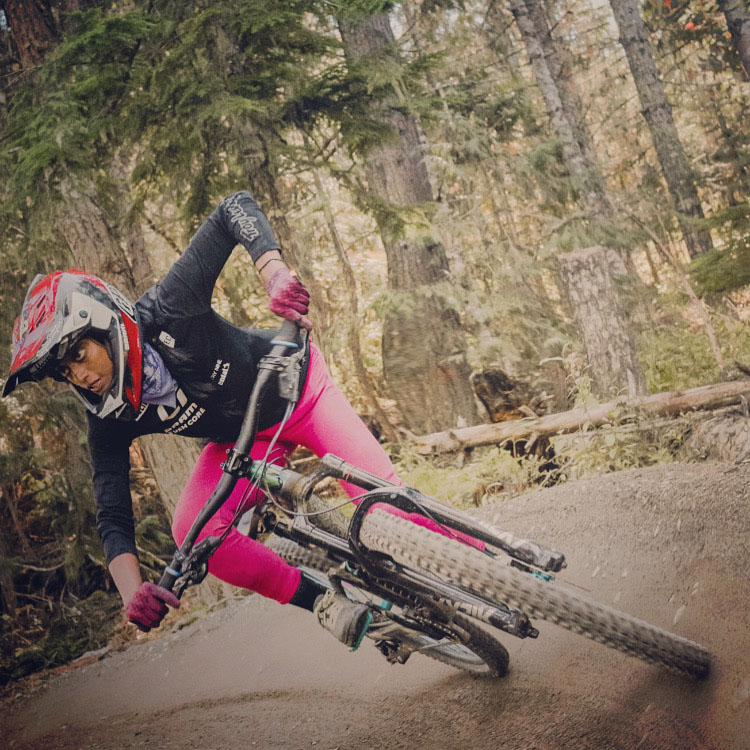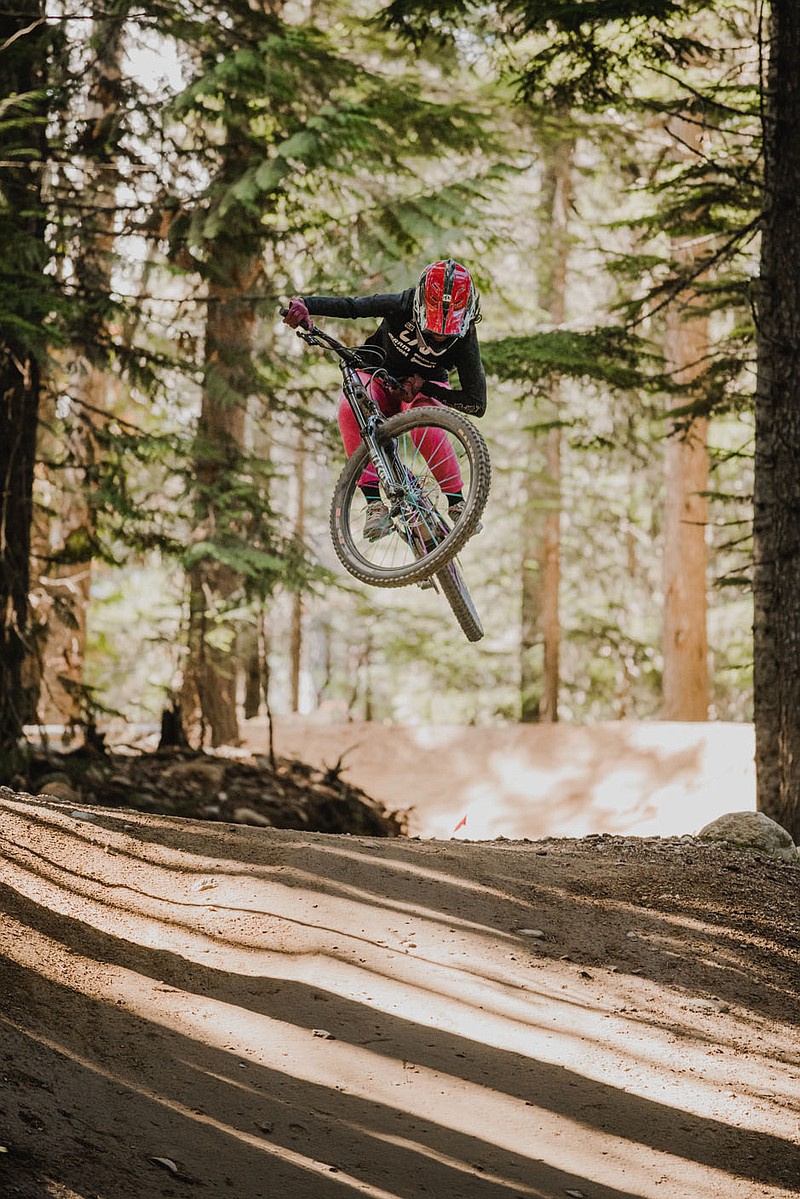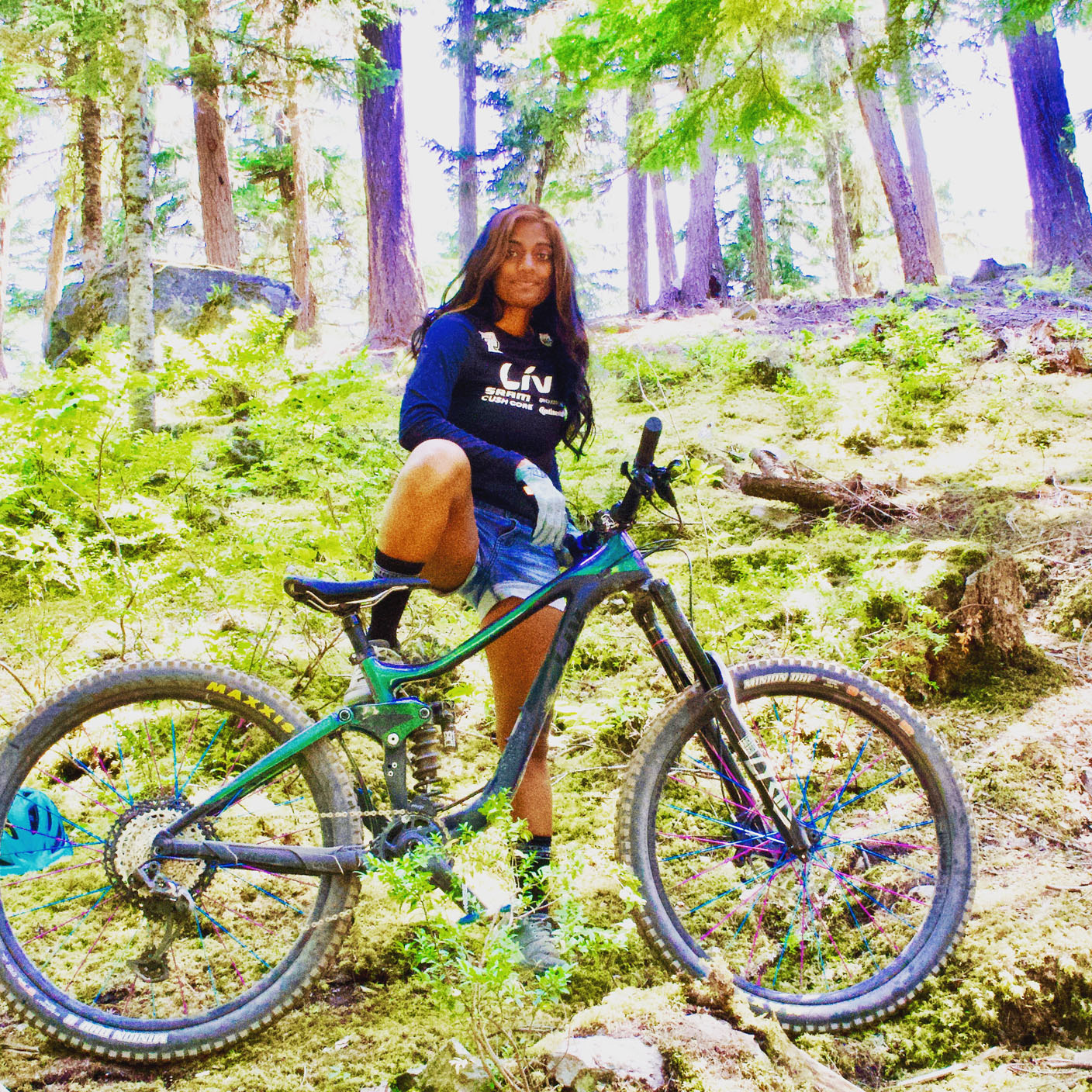Later this week, the Sunset Summit will draw international and prominent national mountain biking ambassadors to the Momentary Green in Bentonville to give women tools to become better mountain bikers while forming deep bonds and community.
The events are hosted by the Women of OZ, a local nonprofit organization that has produced the highest number of certified female mountain biking coaches in the country.
Sunset Summit will include a panel event, coaching clinics and a concert by alt pop band Japanese Breakfast, named Best New Artist at this year's Grammy Awards. More than 75 top mountain-biking industry leaders and coaches will lead OZ trail rides and workshops, according to a news release.
Scheduled keynote speakers for the summit are Brooke Goudy, co-leader of Black Girls Do Bike; Lindsey Richter, the founder of Ladies AllRide, whom you might remember as a contestant on "Survivor"; and the first professional mountain biker of east Indian heritage, Anita Naidu.
"Anita (Naidu) is a talented trailblazer in the women's mountain bike space," says Allyson de la Houssaye of Women of OZ. "She's the first Black/Brown pro female rider, DEAI advocate and conservationist. We are beyond excited to have her as a part of this incredible event."
Naidu is an award-winning humanitarian, engineer and aspiring astronaut from Whistler, British Columbia. She will be speaking at the panel event on Sept. 16 and coaching mountain biking clinics on Sept. 17. She chatted with What's Up! prior to her visit.
You hold titles as many "firsts." First mountain biking pro of Eastern Indian descent and being among the first women to compete at Crankworx Speed and Style at Innsbruck, Austria, are just a couple. How does that feel to earn those distinctions? Is it ever bittersweet knowing that surely women before you must have wanted the same opportunities?
On one hand, I'm from a time when being a dark-skinned athlete in the outdoors was imbued with a cruel significance. I wouldn't wish the burden of going first in so many arenas: mountain biking, climbing, skiing, snowboarding, skateboarding, the way I had to in my young life, on anyone.
Being the first is a privilege and an honor. One that comes with a responsibility, as does any privilege or platform. And that is to ensure that we gift the next generation of women, BIPOCs and marginalized people with security: the freedom to fail up rather than down, so that they may be themselves, free of scrutiny, that they may direct their attention to pursuing even higher ideals.
Is being the first/opening doors for other women a powerful sensation, knowing that more will follow in your footsteps?
Countless women before me have dreamed of becoming astronauts, of having a chance to solve the world's biggest problems, of being professional athletes, filmmakers, etc., and it's impossible not to grieve their inaccessibility to such dreams.
But we can take hope in knowing that while many of us don't get the world we so desperately want, we can still work to build it for those that come after us. I hold enormous gratitude for previous generations who sacrificed in their lives so that much would be possible in mine.
Every barrier, every hurdle, I've overcome compels me to think of all the women I've encountered in my work, all the women in my family, all those who share my skin color who came before me who've fought much harder battles against much higher odds.
My defiance is fueled by our collective resistance to thrive in a world not designed for us. It's important to recognize we are the dream of all our ancestors.
What have those experiences been like as you break barriers? Would you describe one of those most memorable times?
Although getting invited to big competitions is exciting, I think the most memorable moments for me have been the resounding success of the anti-racism mountain bike clinics and all the participants who have become passionate mountain bikers and educated allies over the years.
Years ago, when I first started combining social impact education with high performance mountain bike skills coaching, I faced an enormous amount of resistance. Few people thought combining mountain biking with education on how to address the world's most pressing issues was even possible.
But years of facing doubt and opposition in many areas of life has taught me to manage and overcome resistance. I can't even keep up with the global demand for the clinics now.
I've read that a part of your coaching style is to lend insight into fighting institutional racism. I'm interested in how you incorporate that in a coaching clinic.
The two experiences might seem disconnected, but they are both about empowering women to be the best version of themselves. In both instances women are pushing back against oppressive systems. The joy, community-building and confidence found from learning new skills in a positive, supportive environment is readily transferred to learning how to tackle problems that might otherwise seem overwhelming.
Both cases are about breaking things down in ways that participants can understand, execute on and have a defined path of personal goals. It's about building a community of educated advocates and allies, in mountain biking and beyond.
Would you tell us a little of what you have planned for the panel? The preview mentioned it's based around how you use the mountain bike as a tool. Is it a tool for social justice and diversity equity access and inclusion?
I'll be addressing how, when used in the right way, bikes can help people tap into their full potential. When (they do), it's not just them who benefit but everyone around them.
Using mountain biking as a way to fight apathy and indifference, and specifically to dismantle racism, colonial ideas, gender inequality and climate injustice while building community, confidence and self propulsion is one of my favorite undertakings.
It's about giving people the tools, education and empowerment to be the best the version of themselves mentally, physically and emotionally.
How can we mobilize our community/our region to dismantle racist structures here -- where should we start?
The starting point requires being willing to take an honest look at how things actually are in the space of mountain biking and in your community.
It also means stopping the consumption of racist ideas and being able to identify racism in policies, media, day-to-day culture -- and the only way to do this is via education.
Get educated not just on racism and colonization, but how modern day racism constantly reproduces itself (it's sneaky!) in mountain biking, the outdoors, sports and communities, etc.
What should we do individually?
To solve a problem, we must see it accurately and be willing to carry the load in front of us. This means understanding that multiculturalism isn't the same as anti-racism; that diversity doesn't equal inclusion or belonging even though they get lumped together.
Individually, it means community leaders and community members having a concrete understanding of systemic racism, colonial narratives and how to use power and privilege to reinforce advocacy for true inclusion -- rather than a disadvantageous inclusion -- as well as a cohesive plan for shifting the burden from communities of color so that fighting racism is a shared effort.
Ultimately, as a community and an industry (mountain biking), it's about making clear what kind of behaviors you are no longer willing to tolerate.
 To anyone who has considered getting into mountain biking but doesn’t know where to begin or whether they have what it takes to try it, Naidu encourages an introductory group lesson. Book one where you learn the psychology and mechanics of mountain biking as well as physical techniques involved in skill development, she recommends, since so much of biking is understanding the finer details of how your body moves and building up your mental fortitude. (Courtesy Photo/Logan Swayze Photography)
To anyone who has considered getting into mountain biking but doesn’t know where to begin or whether they have what it takes to try it, Naidu encourages an introductory group lesson. Book one where you learn the psychology and mechanics of mountain biking as well as physical techniques involved in skill development, she recommends, since so much of biking is understanding the finer details of how your body moves and building up your mental fortitude. (Courtesy Photo/Logan Swayze Photography)

